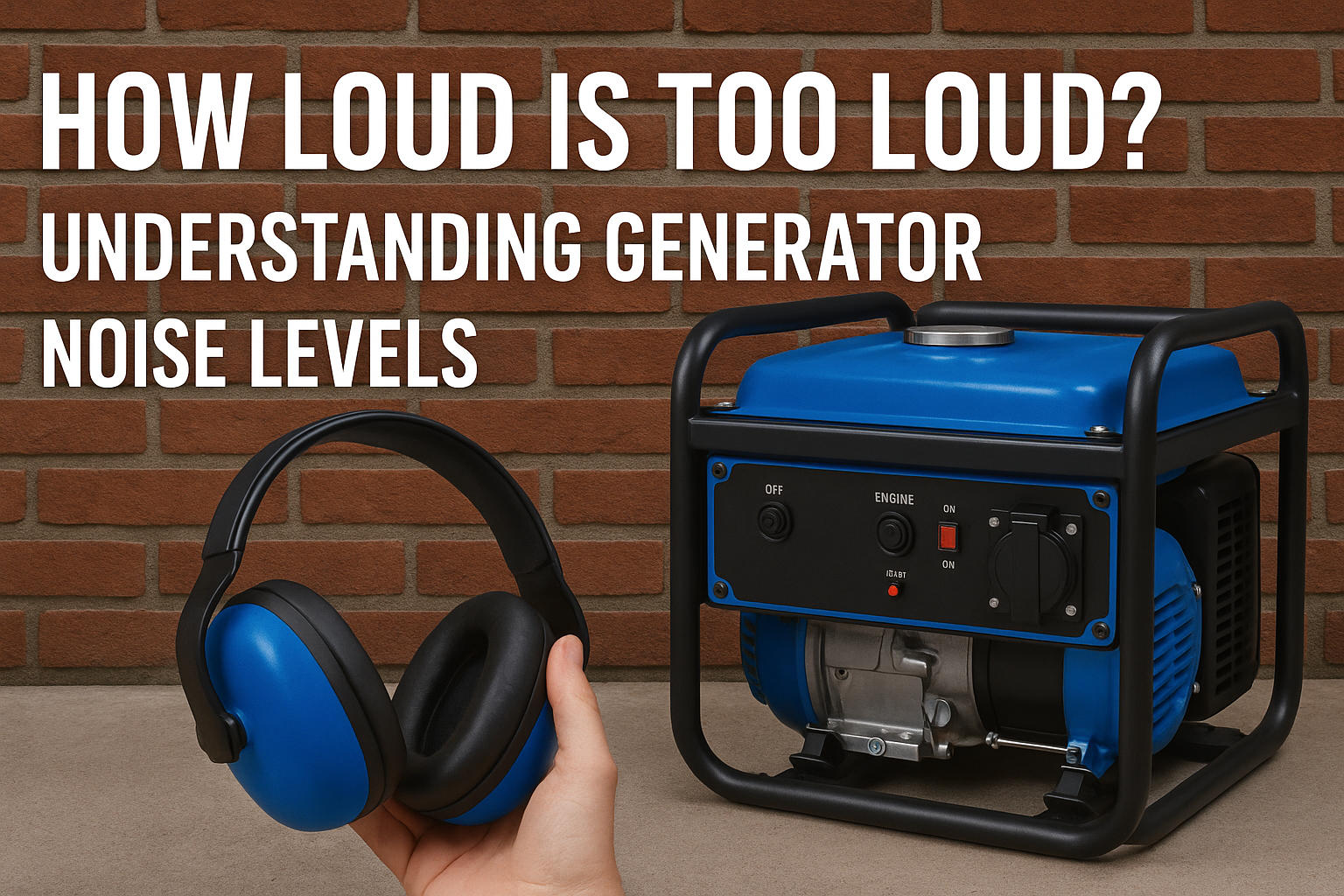You’ve probably heard it before—that loud humming, buzzing, or sometimes downright roar when a generator kicks in. Whether you’re using one for your home, at a campsite, or on a job site, noise is a top concern. You might be asking yourself:
“How loud is too loud?”
and
“Can I keep my neighbors happy while powering up?”
Let’s break down what generator noise really means and how you can manage it without losing your sanity (or your street reputation).
What’s Making All That Noise?
A generator isn’t exactly supposed to be silent—it’s a small engine working hard, often powering your house or tools when regular electricity is unavailable. Its noise comes mainly from:
- Engine and exhaust: Like your car, the engine revs and the exhaust pipes push out gases. This duo is the biggest noise culprit.
- Cooling fans: To stop the engine from overheating, fans run constantly.
- Generator unit: The electric part itself makes a low hum while creating power.
Put it all together, and… yeah, it gets loud enough to grab attention.
Noise levels are measured in decibels (dB). The higher the number, the louder the sound.
- A quiet room is around 30 dB.
- Normal conversation happens around 60 dB.
- A typical generator runs anywhere from 50 dB to 90 dB depending on size and type.
So, a busy street can be about as loud as some generators—quite noticeable!
How Loud Is Too Loud?
This really depends on where you live and what you’re using the generator for:
- Residential areas: Noise above 60-65 dB can disturb neighbors, especially early morning or late evening.
- Camping or outdoor recreation: You want quiet to enjoy nature—something around 50 dB or less is preferable.
- Construction sites or industrial use: Louder models (up to 90 dB or more) are expected but might require hearing protection.
Local laws often regulate generator noise, so it’s worth checking what’s allowed in your area to avoid fines or complaints.
Tips to Keep It Down (Without Losing Power)
- Choose a quiet model: Some manufacturers advertise “quiet” or “inverter” generators designed to produce less noise.
- Use an enclosure or soundproof box: This can cut noise significantly but make sure your generator still has enough airflow and cooling.
- Place the generator wisely: Keep it away from bedroom windows and neighbors’ walls. Hard surfaces like concrete can reflect noise and make it worse.
- Keep it maintained: A well-tuned engine runs smoother and quieter.
- Use extended hoses: Put some distance between the generator and where you spend your time.
What About Portable Vs. Standby Generators?
- Portable generators: Usually louder because of compact design and open engines. Great for short-term or outdoor use but expect some noise.
- Standby generators: Installed permanently and often in soundproofed areas or garages. These generally run quieter and kick in automatically during outages.
Final Thoughts: Keep Power, Lose the Noise Stress
A generator’s noise can be a pain, but with the right choices and a bit of planning, you don’t have to lose sleep or friendly waves from your neighbors. Understanding decibel levels and how generators work helps you pick the best option for your needs—balancing power and peacefulness perfectly.
So, next time you’re shopping or setting up your generator, ask yourself:
“Can I handle this noise level comfortably? And can my neighbors?”
A little thought goes a long way toward happy power, happy home.
